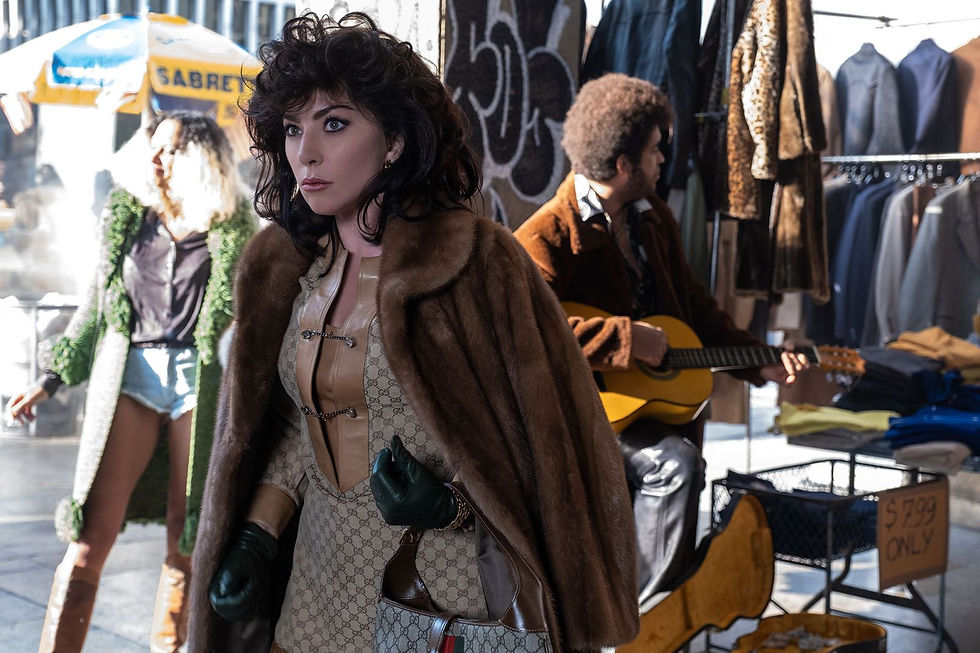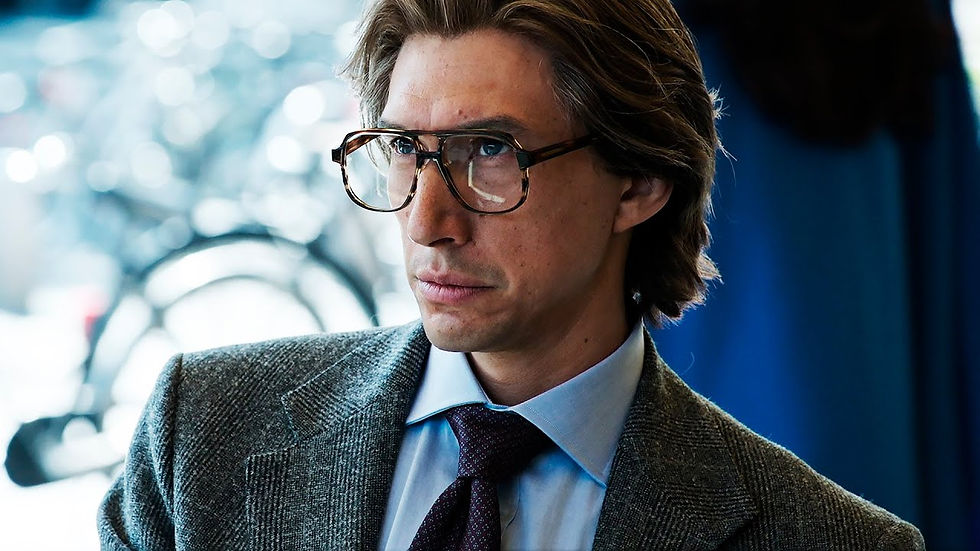Ridley Scott's second film in a year - this time he exposes the inhuman rich and tells the story of the fall of the family brand.
Ridley Scott is shooting a doublet this year: following The Last Duel, which can still be seen in cinemas, the House of Gucci, a new work of the overage master, is out. Such creative agility is definitely not expected from an 84-year-old perfectionist director, who, moreover, shoots not small chamber tragicomedies like Woody Allen, but two and a half hour historical epics with Oscar ambitions. But Scott's long-known versatility is even more striking: after the conceptual chivalric novel in the spirit of Rashomon, he makes a shocking drama about a famous family from the fashion world, collapsed under the weight of ambition.

Patricia Reggiani (Lady Gaga, it seems, has now gained an Oscar as an actor) meets a modest lawyer Maurizio (Adam Driver) at a party, in which her last name is much stronger than her appearance or character: Gucci. She seduces the guy, and soon he is ready to marry, despite the threats of his father Rudolfo (Jeremy Irons) to deprive him of his inheritance. The couple move into a small apartment, Maurizio washes cars in the company of his father-in-law, until Aldo Gucci (Al Pacino) contacts him. Uncle wants the guy to work for him: especially since the eccentric own son Paolo (Jared Leto) is no good for anything. Maurizio is not eager to do the family business and is happy in his simple position, but Patricia is not happy with this situation. She begins a complex behind-the-scenes game that will eventually end in a scandal, a series of betrayals and murder.

Ridley Scott is no stranger to reaching out to the world of vicious rich men, corrupted and dehumanized by their exorbitant bank accounts. His painting "All the Money in the World" has already looked at how relationships within the family are distorted under the weight of financial disagreements. "House of Gucci" can be considered to some extent a continuation of this conversation, perhaps with a slightly changed intonation. In fact, Scott dilutes the scary story of moral decay with jokes, caustic dialogues and almost farcical eccentricity. This is especially striking in the image of Paolo Gucci, an unambiguously comic character, who seems to have made his way into the academic drama from somewhere in the parody "Exemplary Male". The director saturates the sad story with a bunch of absurd details that fit surprisingly well into the universe of people who have gone mad with boredom and greed: they are baptized in the name of the "House of Gucci", and they plan their personal lives according to tarot cards, almost like the Bond villain from Live and Let die ”, because they are no longer capable of independent reflection.

The cold world of the billionaire Getty from All the Money in the World was replaced by sunny Italian villas and flashy shocking fashion industry. And a very unambiguous conflict - the unwillingness of the grandfather to allocate money for the ransom of the grandson from the kidnappers - was replaced by much more abstract things. The lust for power, jealousy, the quiet horror of life in a world where any attachment becomes an unequivocal weakness. It would be a big banality, but it would also be an equally great omission not to compare the film with "The Descendants" - another darkly comic story about a family business and the destructive power of money. But only if Jesse Armstrong's series shows the already formed world of aggressive capitalism, where any hint of sincerity causes instant rejection and suspicion of another deception, then "House of Gucci" records the emergence of this cannibalistic culture. Shows exactly the moment when family relations within the company have finally ceased to be of any importance. When the real "Gucci" were not those who were born into a family, but those who run a multimillion-dollar company, and the brand changed the surname. It is not for nothing that Patricia Reggiani is obsessively reminded here that she is "not the real Gucci", and it is not for nothing that at the final trial she asks herself to be named by the name of her deceased husband. For her, seizing power in the family is the only chance to become part of it. And murder is just a kind of initiation rite.

Scott contrasts the “simple” life with the suffocating life of the elite: the only unambiguously joyful scenes in the film are those where the heroes give up their position and allow themselves to be human. Maurizio Gucci washes a truck and splashes water like a child with a colleague. Aldo Gucci, despite the betrayal of his son, hugs him as if for the last time, saying that he is, of course, an idiot, but he is still “his idiot”. As, by the way, in "Duel", Ridley leaves no special understatements - in his old age he knows exactly what he wants to say, and is not afraid to be straightforward. And in life, where Scott scolds millennials with their cell phones for nothing, and in the movies.
To the real events on which the plot of the film is based, he treats the same as to the correctness of the accents: in other words, he absolutely does not care. Ridley Scott completely submits historical truth to creative intent. In fact, the Gucci family drama did not develop quite like that, the events in it are mixed and changed, and some are completely ignored. What has been happening over the course of decades looks like the events of several months in the film. Yes, maybe this greatly simplifies reality. Yes, probably Paolo Gucci was not such an idiot as he looks on the screen, and Patricia Reggiani is not such a transparent character in life. But the "House of Gucci" works precisely because it leaves only the main thing. It turns life into an intelligible parable, and shows the main character as a personification of a thirst for money - an alarming symbol of a new era, which so frightens old Ridley.
Comments